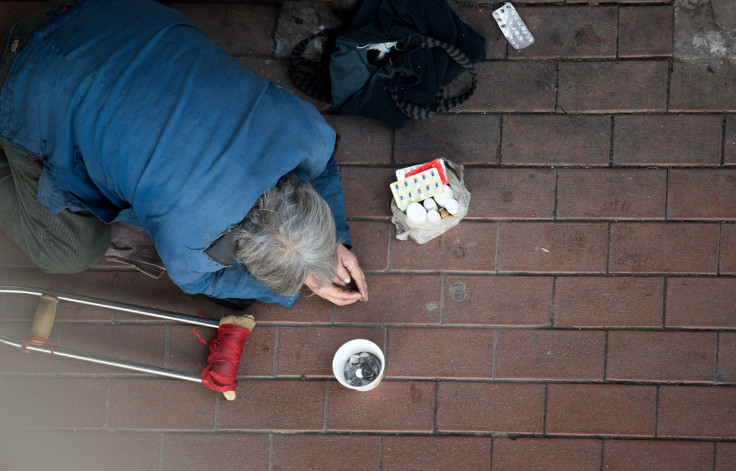China Is Banning Online Videos Of Old, Disabled People; Deletes Internet Photos Showing Poverty

KEY POINTS
- China's internet regulator launched a crackdown on videos showing poverty, old people and disabled people
- A video showing an elderly woman suffering financial hardship was removed from the Chinese internet
- China censored a music video countering the government's claims about youth unemployment
China has expanded its repressive censorship policy by going after online videos and photos depicting poverty.
In March, the Cyberspace Administration of China, the country's internet regulator, announced it would crack down on individuals who publish videos or posts that "deliberately manipulate sadness, incite polarization, create harmful information that damages the image of the [Chinese Communist] Party and the government, and disrupts economic and social development."
The regulator banned sad videos of old people, disabled people, and children as well as online posts discussing citizens' economic struggle in the country.
The censorship was launched as more and more video streamers reveal the poverty across China and as the country's youth unemployment climbs to nearly 20%, The New York Times reported.
Among the content that has been removed from the Chinese internet is a video recorded and posted by Hu Chenfeng showing him interviewing an elderly woman living on barely $15 a month.
In the video, the 78-year-old widow told Hu that she planned to buy only rice since it was the only thing she could afford and that she hadn't eaten meat in a long time. The old woman cried as she detailed her financial hardship.
Hu joined the elderly woman at a grocery store, where they bought rice, eggs, pork, and flour, which totaled $18. Hu insisted on paying and emotionally ended the video.
Hu's heartbreaking video was later removed from the two largest Chinese user-generated video platforms, and his online accounts were suspended.
According to some Chinese social media users, Hu's video revealed too much about daily life in China. "His account was censored simply because he showed what life is like for many people," wrote one commenter on a now-deleted discussion thread on Zhihu, a Chinese website similar to Quora.
However, Hu's video about the elderly woman is still available on YouTube.
"I shot these videos in the hope of making some money while pushing our society to move forward just a little bit," Hu said in a video posted on his backup social media account. "But I never expected that this is forbidden."
Another casualty of China's censorship on poverty was a music video that counters the Chinese government's narrative that young, educated people can't find work because they aren't trying hard enough.
"I wash my face every day, but my pocket is cleaner than my face," the lyrics read, according to the Times. "I went to college to help rejuvenate China, not to deliver meals."
According to China Digital Times, the banned video was originally uploaded to the Chinese video-sharing website BiliBili and got over 3 million views before it was censored. The music video used a well-known literary character, Kong Yiji, an educated but poor intellectual who lived during the Qing dynasty.
A discussion thread on Zhihu about why the government is removing videos showing poverty was also censored.
"Because theoretically there's no poor people in China," one social media user wrote before the thread was removed. "China has eliminated poverty."
In 2021, Chinese President Xi Jinping claimed victory in the battle to eradicate extreme poverty in the country.
Xi said his government had lifted nearly 100 million people out of poverty in a span of eight years, BBC News reported.

© Copyright IBTimes 2025. All rights reserved.






















